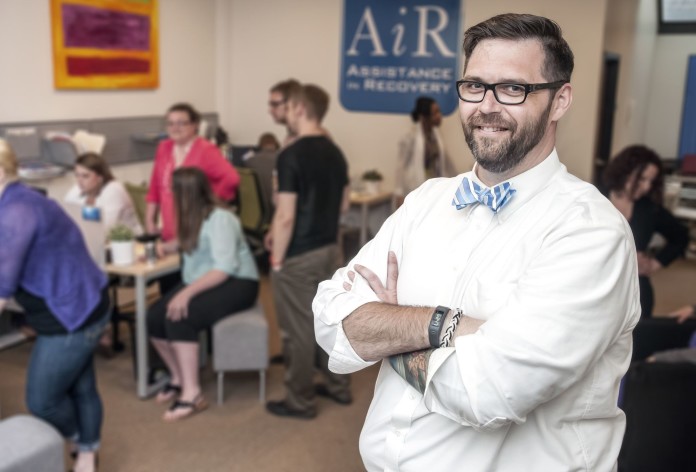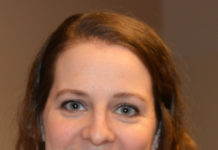Dallas Hansen is a clinician for AiR Healthcare Solutions in St. Paul.
At 23, Dallas Hansen was “ready to die”. At 24, “I got a DUI. I spent a week in a psych ward. I decided to change my life.”
Hansen went through treatment at Hazelden, where a counselor in a group session asked what made him different from anybody else in the room. “I couldn’t give a good answer,” Hansen said. “I am like everybody else that I was in treatment with. They all had something going on that made their life chaotic. I started to open up for the first time.”
Since counseling was key to his own recovery, Hansen “saw that as an opportunity for myself.” He got an Associate Degree in addiction counseling from Metropolitan Community and Technical College (MCTC) and followed that with a Bachelor’s Degree in psychology from Metropolitan State University. While in school, he had two internships – one of which led to a job as a residential treatment counselor.
He started at AiR in September 2014. “We work with large treatment centers on the continuing care plan they create,” Hansen said. “We do a lot of case management. I use my skills as a counselor, but our main job is to make sure they’re seeing the therapist in their hometown. Our average call is around 20 minutes. We do a lot of e-mailing. We also do text messaging. Twenty-somethings don’t like to get on the phone and talk.”
He makes a first-time contact while clients are still in treatment, then provides weekly contact for six to eight weeks, followed by less frequent contacts for a full year. He also works with family members to help them find a therapist or support group.
Hansen said AiR’s unique structure helps to prevent burnout.
“When I first got into counseling, I was told the average length of time before burnout is two to two-and-a-half years,” he said. “We have people who will call us to tell us they’ve relapsed or they’re feeling suicidal. A 20-minute conversation about making sure they’re seeing their therapist is different from sitting down and doing the therapy with them.”
Hansen also credits the AiR culture for higher retention rates. “When I came here to interview, I said, ‘I’m not used to seeing people smile.’ Here, if you have a bad call, from someone who’s drinking or suicidal, our bosses encourage us to get away from the phone, take a 10-minute walk. In my last two jobs, nobody did your work for you if you had a day off or a vacation. Here, team members split up your calls and e-mails. They make sure you can separate from the job if you’re sick or on vacation. I will say this is the most relaxed eight months since I became a counselor.”
What’s the best part of the job?
The team. Without the team I can’t do my job. Also, I can’t say how great it is working with family members and giving them the gift of “no”. We give them permission. They say “no” for the first time in 20 years or 30 years. That really helps them change.
What’s the hardest part of the job?
Sometimes we get those tough calls. The client or family member doesn’t want to talk to you. They want to stay stuck. I am responsible for the effort, not the outcome. I am there to give support. I can’t fix them.
Photo Credit:
Link: http://www.startribune.com/my-job-dallas-hansen-behavioral-health-clinician/304991691/











